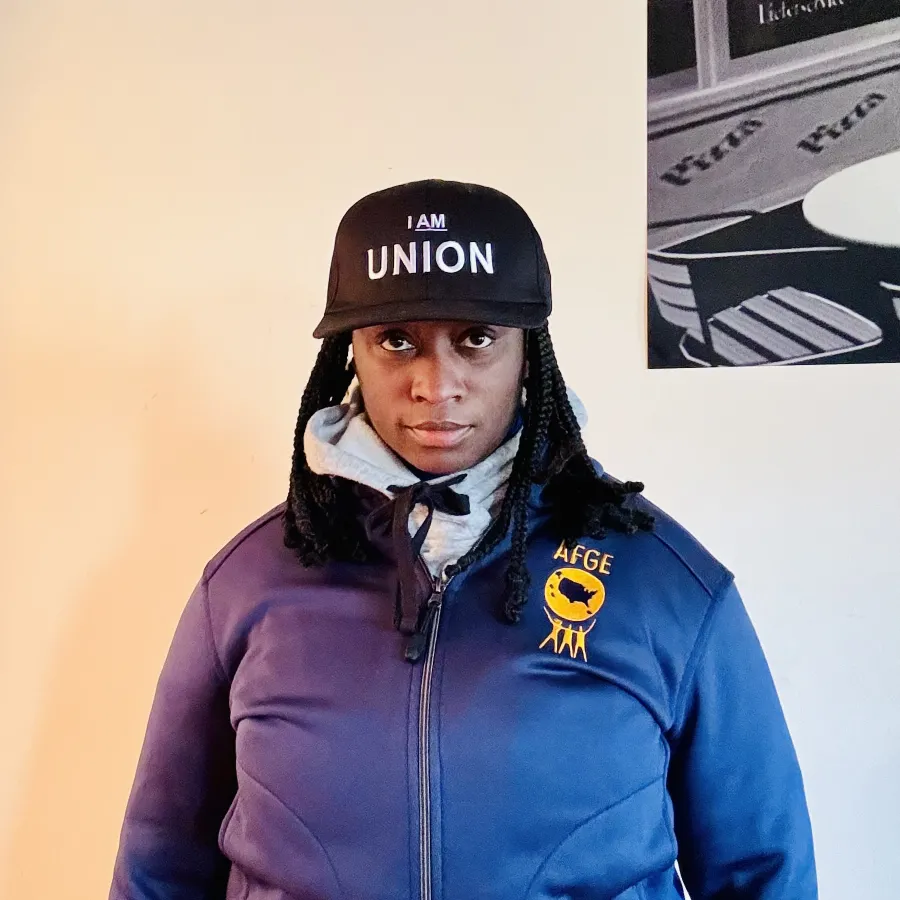Member Spotlight: Gabbi McKinley (AFGE)

Member Spotlight is a recurring blog post series intended to highlight and connect the dots between the programs and priorities of the NC State AFL-CIO and the leaders and activist members of our affiliates who make it all possible.
My name is Gabbi McKinley, I am vice president of American Federation of Government Employees (AFGE) Local 3347 and a trustee for the Triangle Labor Council, AFL-CIO. My union represents workers at the Environmental Protection Agency (EPA), and my work for the EPA is to develop policy focused on air quality. Sometimes I wish it could be that simple, but I’m too familiar with how the federal government operates to rest on my laurels as the powers that be shift in the political winds. I joined AFGE over 10 years ago when I realized if I couldn’t make change as an individual employee, I would do it as part of a union.
My strategy to affect change involves empowering as many people as I can. Unfortunately, there is a high level of discrimination and retaliation within the federal government, and many employees, particularly those of marginalized demographics, tend to stay silent on the issues they face to keep their jobs. But if we can join together and raise visibility on our issues, we can harness the power to make change. This past year, I worked with North Carolina members of Congress Valerie Foushee, Deborah Ross, and Wiley Nickel to bring them to our EPA office and meet with the union and all EPA staff. Attendance at these meetings was higher than some of their own town halls! They were excited to reach so many people, and I was proud to show my EPA co-workers that the union has power in part because we’re connected to the people creating change.
A main focus of my work right now is preserving geographic flexibility for remote work. After federal employees were told to return to the office post-COVID, I started a bi-weekly meeting to keep everyone informed. AFGE has a collective bargaining agreement with the EPA that allows for telework full-time, yet some employees are being denied the ability to do that. Additionally, I wanted people to know that in-person work actually costs taxpayers more money on rental, maintenance, utilities, and other overhead expenses—high bills that would disappear if employees were permitted to work remotely. Plus when we restrict working at different geographic locations, we restrict diverse thought and practice. Imagine working on national rules for places you’ve never lived or experienced and you don’t even hear from people who live there. Back in July, I won four settlements to allow individuals to work remotely—and those wins help to keep me going.
If unions are going to win even more victories for working people, we need more people to say “count me in!” to join us. Less than 11 percent of our country’s working population is unionized, but look at how much we have accomplished these past few years—from historic federal investments in combating climate change to historic union organizing drives, strikes, and contracts. Can you imagine what more we could do if our numbers increased by even a small fraction? We may be few in numbers, especially in the South, but our voices as workers are powerful when we stand together in unions. So don’t rest on your laurels—pay attention, speak up, organize your workplace, and keep organizing!
